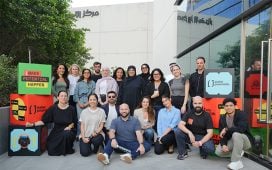International names may seem like a safe bet, but for written communication nothing beats native language skills, writes Eman Hussein, deputy CEO of Hattlan Media
If I got a dirham for every time I heard a client complain about the quality of Arabic in press releases, speeches and written interviews, I would head to the showroom and buy my dream car.
But I don’t get a dirham; instead I get a barrage of complaints from organisations disappointed with the quality of language delivered by their in-house teams and outsourced agencies.
It has become the norm in corporate organisations and even government entities that all marketing documents are developed in English and then translated
To continue reading this article you need to be registered with Campaign. Registration is free and only takes a minute. Register Now or sign in below if you already have an account.









